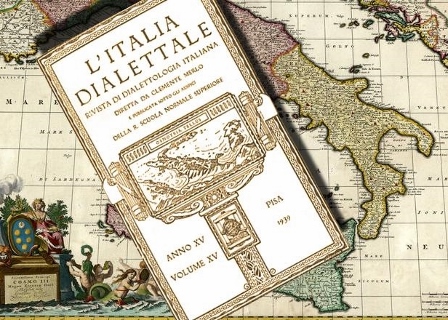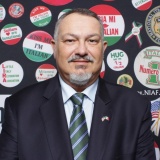
WTI Magazine #83 2016 September 16
Author : Giulia Casati for the Italian School NJ Translation by:
Ciao, beddu, chi si dici? Se te dì cus'è? Ah Italy! The country of that beautiful and melodic language called Italian. But did you know that Italian isn't the only "language" spoken in the peninsula? For instance, try using your Italian dictionary to find the meaning of "beddu" and "cus'è" and you might have some trouble. That's because they aren't Italian words at all, but actually words from two completely different dialects, Sicilian and Brianzolo.
In fact, Italy hosts hundreds of different dialects that unfortunately are going towards their extinction. Neapolitan, Sicilian, Venetian, Milanese, are completely different languages when compared to Italian. Actually, the Italian language itself is a dialect. Yes, the official language of Italy is nonetheless the Florentine dialect, which is the traditional language of the Tuscan Region. Let's say you were born in the 1910s in Naples and you wanted to take a little road trip around Italy and visit Rome, Palermo, and then up north to Florence, Genoa, Milan, and Venice. Well, you might have some problems getting around.
The majority of the Italian dialects, in fact, are so different that the speakers of different dialects cannot understand one another. It's almost like speaking French to an American and German to a person from Spain. In fact, even though all the dialects have the same Latin origin, the many populations that conquered the different areas of Italy had a concrete influence in the development of the single dialects. But, what is the difference between a language and a dialect? Why did one dialect come to be a language and others are about to go extinct? Well, this is a long story, but I'll make it short.
First of all, the only difference between a dialect and a language is the political recognition. A language is the official idiom of a country or certain region, while a dialect is never officially recognized by a government and does not have a political status; therefore, it is left to occupy a more subordinate position. But, don't get fooled, this doesn't mean that nobody speaks the dialect. But still, all this doesn't explain why the Florentine dialect became the official language of Italy.
It was almost by luck. It just happened that for economic and historical reasons, during the 1300s, massive amounts of literary works of the Tuscan Region, the cultural center of Italy at the time, circulated all around the peninsula. I am talking about the works of Dante, Petrarch, and Boccaccio. So, poets and authors from all different areas started to learn the Tuscan language in order to read these works and; therefore, they started to adopt the Florentine Dialect as a universal language of culture.
A famous Italian line states that Alessandro Manzoni, the well-known Milanese author, even went to the river Arno to "wash his laundry", which is a metaphor for when he went to Tuscany to "wash" his masterpiece I Promessi Sposi, (The Betrothed), from all the words that belonged to the Milanese Dialect and not to the new universal "Italian" language. I put "Italian" in quotation marks because, even though the Italian peninsula has been in history books for thousands of years, Italy as a country was not unified until 1861! The Italian language, therefore, is at least 500 years older than its own country. But also for this same reason, in the early 1900s very few people spoke Italian. Each independent state had its own language prior to the unification and the Florentine language was only spoken by intellectuals at the time.
Until 50 years ago (probably even more recent then that), most people primarily spoke the dialect of their area. Dialect was spoken to children and in public occasions, and only schools taught real Italian. Even though many educated people knew how to speak correct Italian, the language wasn't popular among friends and family, probably because many people that were born at the turn of the 20th century never learned how to speak Italian.
Let's not forget that at the unification of the Kingdom of Italy, around 80% of the population was illiterate. In the 60s, the ministry of education even created a TV program called "Non è mai troppo tardi," it's never too late, in order to teach and promote the use of Italian amongst Italians. The host, Alberto Manzi, was a real professor, and an expert in pedagogy. This show resulted in a great success, and more and more people started to adopt Italian as their primary language. As Italian became widely used fewer people spoke dialect and even fewer passed their regional language down to the younger generations. This is a trend that still continues today; therefore, many dialects in Italy are quickly going extinct.
This shift from dialect to Italian can be easily seen in the language habits of the different generations. For instance, many grandparents would speak to their grandchildren in dialect, but the grandchildren would only answer back in Italian. This is because, even though the grandchildren have a good comprehension on their regional dialect, they are not able to speak it anymore.
Despite the declining use of dialect, you can still hear people speaking it in the streets. So don't be surprised, if after years of speaking Italian, you go to Italy and don't understand a word. Don't get discouraged. It's not you, they're just speaking a different "language."



